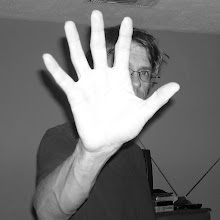I was paging through the short movie reviews in The New Yorker and decided to read their brief comments about Watchmen. I already knew they hated the film but I read it anyway. A line in the review caught my attention: "Alan Moore's graphic novel [is] something of a cult among devotees, which means that, like all cults, . . . it has escaped critical rigor."
That line got me wondering about all sorts of things.
First, what does "cult among devotees" mean? Doesn't a cult imply a loyal following (i.e., devotees)? I suppose you can be a devotee of something that does not have cult status: A devotee of ER or 60 Minutes or Superman or Walt Disney animation. Do these things transcend cult? Are they big enough and so well-known that the terms of "cult" do not apply?
Some things inspire cult followings and, in turn, become "cult objects." But if something is cult has it really escaped critical rigor? Does such a designation provide immunity from critical study? Or have cult shows (and comics and movies) been overlooked or ignored by the critical community?
The implication in The New Yorker piece is that a cult object won't hold up to a thorough vetting, won't last under the exacting scrutiny of academic analysis. But just because something has escaped critical rigor does not mean it can't withstand it.
Just wait and see if Watchmen doesn't generate its own body of critical study. It has happened before. I would argue that Moby Dick was once a cult object. So were movies like The Wizard of Oz and Citizen Kane. More recently, we have David Foster Wallace's Infinite Jest or Cormac McCarthy's Blood Meridian or Stanley Kubrick's 2001: A Space Odyssey or David Lynch's Eraserhead. These are now revered works of art. They are also cult objects that have thrived under critical examination.
And if a work can go from cult to art, how about from art to cult? Could there be classic works that have achieved a new kind of cult status because they are so revered? Tell me there aren't Hamlet geeks (err, devotees) out there. Or people who are way over-the-top for Joyce's Ulysess or Pynchon's Gravity's Rainbow.
Hmm, feels like a circle is closing. Too much critical rigor and you're a cult all over again. Nice!
1 week ago



I think what they were getting at was that if you look at the way devotees of the work talk about it, it appears to be something of a cult (yeah, they botched the wording), but I actually disagree with that. It's more correct to say the work is considered canon in the (relative to mass media) small-ish comics community, and as such the criticism of the work itself is distorted the same way criticism of Shakespeare of the Bible is distorted - your criticism has to either prove or disprove it's greatness, which is a false dichotomy. It's just a matter of the work being in a position of heightened "anxiety of influence" that makes eye level criticism more difficult, but the anxiety is there in all criticism. There is always a context.
ReplyDeleteThat said, I think there's quite a bit of useful watchman criticism, much of it formalist/structuralist, but there is good theme level analysis as well.
Watchmen can't be considered a cult except in that it is canon within the cult of comics.